J.A. Seazer
Рождение : 1948-10-06, Miyazaki Prefecture, Japan
История
Takaaki Terahara (寺原 孝明 Terahara Takaaki), known professionally as Julius Arnest "J.A." Caesar (born 6 October 1948), is a Japanese film and theater music composer. Seazer enjoyed popularity among students in Japan during the 1960s, and worked closely with director Shuji Terayama and his theater Tenjo Sajiki until Terayama's death (besides incidental music, he wrote a few full-fledged rock operas for Tenjo Sajiki, including Shintokumaru). He is a member of the theatrical company Experimental Laboratory of Theatre ◎ Universal Gravitation (演劇実験室◎万有引力 Engeki-Jikkenshitsu Ban'yū Inryoku), better known as just Ban'yū Inryoku. He gained more mainstream attention for his songs composed for the anime Revolutionary Girl Utena, and has also composed the score to the animated film adaptation of Suehiro Maruo's manga Mr. Arashi's Amazing Freak Show (also known as Midori or Shojo-tsubaki).
-- Wikipedia

Himself
The documentary to find the "true Shuji Terayama".

Himself
A documentary about Morisaki Henrik, AKA Terayama Henrik, who became Terayama Shuji's adopted little brother after his death. Henrik continued Terayama's legacy in his own way after the passing of his collaborator and brother.

Music
Based on Minoru Nagao's 1969 experimental book Illustrator: Basara ningen.

Music
A bus full of cult members gets stuck in snow. The cult has to stay in a mountain hotel. Strange things start to happen...
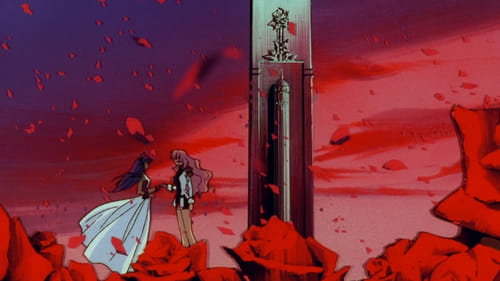
Original Music Composer
Девушка не стала покорно ждать своего принца — она решила сама стать принцем. Что получила она в награду или в наказание за свою дерзость? Титул Победителя Дуэлей и вместе с ним — переходящий трофей, прелестную Невесту Роз, которая была живой собственностью победителей. Две девушки, кружащиеся в восхитительном танце под водопадом из лепестков роз — было ли это зарождением любви? Фильм оставляет больше вопросов, чем дает ответов, и может быть на самом деле это история не о любви, а о силе, способной изменить мир. Впрочем, иногда это одно и то же.
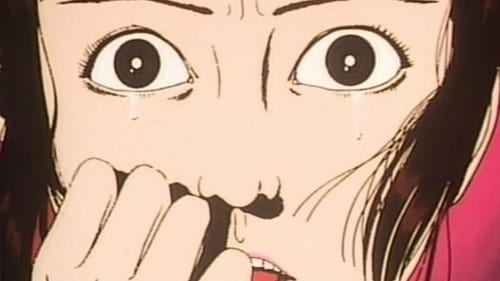
Original Music Composer
Двенадцатилетняя Мидори, ставшая круглой сиротой после смерти матери, зарабатывает на жизнь продажей цветов. Спасаясь от реальности, она принимает приглашение от незнакомца и вступает в цирковую труппу. Но надежды на лучшую жизнь разбиваются в прах: суровая реальность несравнима с буднями бродячего цирка уродов. Девочке приходится день за днём терпеть издевательства циркачей и работать на износ. Однажды в цирк приходит карлик под псевдонимом Кудесник Масамицу, талантливый гипнотизёр, чей номер сулит нищей труппе большой доход. Карлик обещает девочке лучшее будущее, но сможет ли Мидори вырваться из адского круга, в который превратилось её существование?
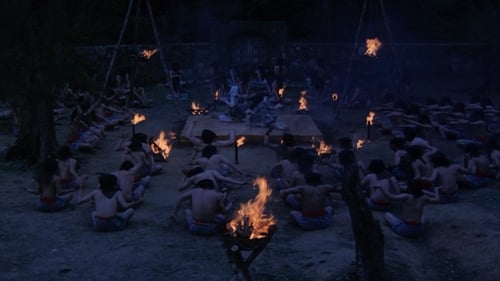
Original Music Composer
В небольшой японской деревушке влюбленные поженились, несмотря на существующие предрассудки о тех, кто вступает в брак, являясь родственниками. По легенде у таких людей может родиться ребенок с хвостом. С этих странных событий и начинается невероятная история…

Music
This is Shuji Terayama memorial performance from 1983.
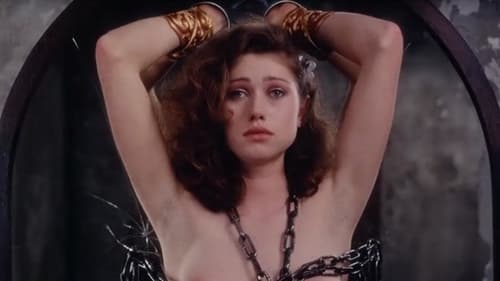
Music
A girl named O loves a rich, and much older man. She is subjected to a variety of humiliating experiences to prove her unconditional obedience to him in a chinese brothel. A poor boy sees her and falls in love with her. To get the money needed to sleep with her, he takes part in rebellious acts.

Music
Akira is haunted by a "bouncing ball" song that he remembers his mother singing when he was a small child, and now on the verge of a sexually active adulthood, he wants to find the origins of the song. The young man ostensibly wanders into a time-warp in which aspects from his childhood and adulthood mix together. In this never-never land he comes across a beautiful woman/witch who is lost inside the labyrinth of her mansion, just as the young man is lost in the labyrinth of time — and on some levels, perhaps the labyrinth of his subconscious.

Music
Stage performance by the Tenjo Sajiki troupe.

Music
Shuji Terayama and J.A.Seazer's phantasmagoric folk-psych-symph-prog-rock opera. Historical Tenjo Sajiki performance from 1978.
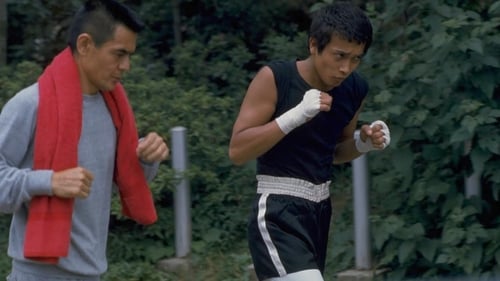
Original Music Composer
In the midst of a match, a successful boxer - Hayato, has had enough of the sport. He lets himself get knocked, quits boxing, leaving his wife and start living alone with his mangy dog. One day a young mediocre boxer knocks at the door and wants to be Hayatos apprentice.
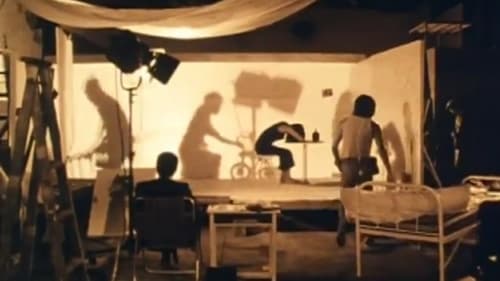
Music
As a family goes on with their day, the shadows on their walls lead a completely different life.

Music
Visions of characters by the seaside from one's memory are erased by the filmmaker's hand.

Music
Using bluescreen video techniques, Terayama playfully—and with a silent film theatricality—posits a series of postmodern vignettes featuring realities-within-realities as his protagonist attempts some kind of relationship with a nude woman on the screen-within-the-screen. In his struggles to “free” her, he exposes the absurd flimsiness, deceptiveness and mutability of both the cinema experience and our human dimension.

Music
In this Borgesian satire on knowledge and technology, bibliophilic desire leads to the construction of a pedal-powered reading machine. Resembling a combination of gymnastic contraption, printing press and early cinematic apparatus, the machine’s purpose remains ambiguous. And like this machine, Terayama’s film connects his work in poetry, motion picture and graphic design by weaving together printed and projected, still and moving images.

Music
An experimental short featuring people and nails.

Music
A group of young men go treasure hunting in the sea.
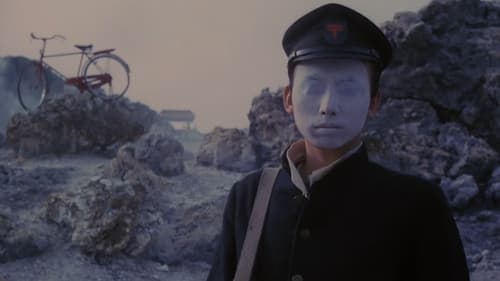
Original Music Composer
Это откровенная медитация на тему детства и взросления, диалог взрослого режиссера с самим собой в том возрасте, когда ему было 15 лет.

Tengu Kurama
Это откровенная медитация на тему детства и взросления, диалог взрослого режиссера с самим собой в том возрасте, когда ему было 15 лет.

Music
Originally made for the 100 Feet Film Festival hosted by Image Forum. However, to test the limits, Terayama Shūji willfully made use of 3 projectors to project 300 feet of film at the same time.

Music
An insight into the lecture "How to rule the others" given by Mr. Slobodan Cirkovic 'Roko', a well-known Yugoslav experimentalist on telepathy and hypnosis.
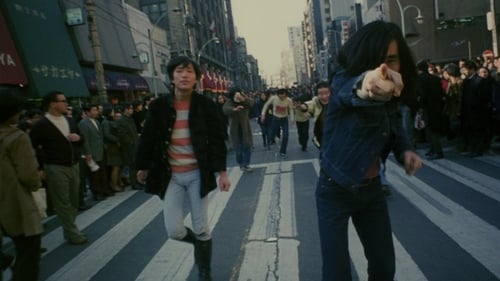
Longhaired Poet
История японского подростка из неблагополучной семьи. Его бабушка страдает старческим маразмом, сестра любит своего кролика на грани сексуальной одержимости, а отец отводит юношу к проститутке, чтобы тот стал мужчиной. Пережив множество тяжелых жизненных ситуаций юноша разочаровывается в людях и собственной жизни. От ярости он сбегает из дома и оказывается на улице. Главная история фильма разбивается короткими рассказами различных людей, которые помогают сложить цельную картину явлений в обществе Японии в 60-70-е годы.

Music
История японского подростка из неблагополучной семьи. Его бабушка страдает старческим маразмом, сестра любит своего кролика на грани сексуальной одержимости, а отец отводит юношу к проститутке, чтобы тот стал мужчиной. Пережив множество тяжелых жизненных ситуаций юноша разочаровывается в людях и собственной жизни. От ярости он сбегает из дома и оказывается на улице. Главная история фильма разбивается короткими рассказами различных людей, которые помогают сложить цельную картину явлений в обществе Японии в 60-70-е годы.
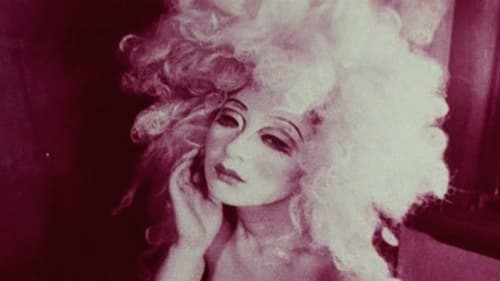
Music
In a Japanese colony, children overthrow their parental guardians and attempt to form a new society. Their plan spirals out of control and they are soon lost in a web of sexual deviation and violence.

Original Music Composer
Finished shooting in 1962, the movie’s cast was almost the same as its crew. With a bunch of experimental symbols such as skinny human body, clock and goat flow from one scene to another, the film explores the question of whether a man is a prisoner of time.











